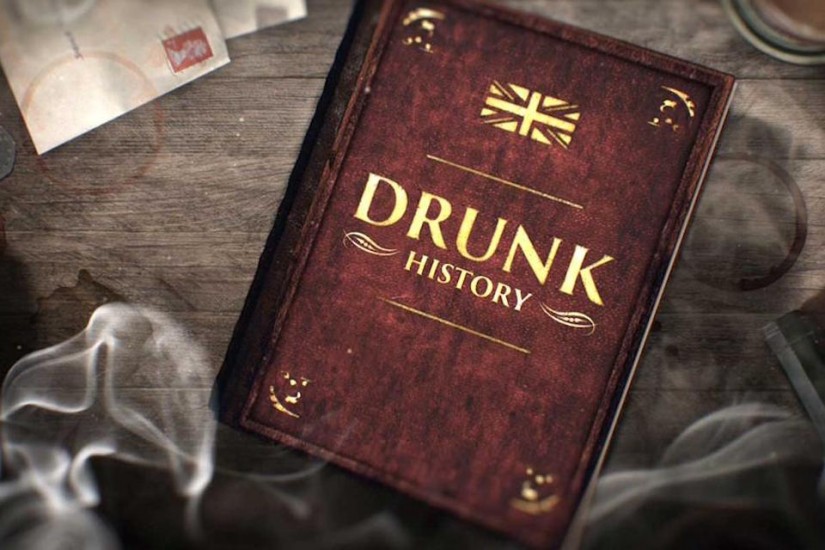The premise is simple. Each episode has a theme—say, heists or civil rights. There are three segments. In each, Waters teams up with a guest storyteller, who is often a comedian. Many guests are comparative randos, although the current season also features stars like Questlove, Tiffany Haddish, and Rachel Bloom. In a kitchen, Waters and the narrator mix drinks, chitchat, and get to know each other. Once a buzz has been established, the scene moves to the living room, where the guest tells whatever story is on the agenda: maybe it’s about a “ghost army” that artists built during the Second World War, to distract the Germans, or about the 1963 Children’s March, in Birmingham, Alabama, or about an extremely weird medieval trial involving rats. Some stories are slight and others meaty, but they often feature details that would be relegated to footnotes in more standard histories. (Did you know that one of the creators of the Oxford English Dictionary, W. C. Minor, was a murderer confined to a mental asylum? I did not.)
As the drunk guest narrates, we cut back and forth to a fully produced docudrama, starring other semi-familiar names (Weird Al Yankovic, as Adolf Eichmann; Abbi Jacobson, as Gloria Steinem; Method Man, as Grandmaster Flash). These sequences aren’t scripted; instead, the actors lip-synch the words of the drunk person, which means that the dialogue continually adjusts to pauses, burps, and impaired tangents. Just as you get into the swing of the story of Rasputin, for instance, the tsarina gets lost trying to pronounce “aristocracy.” “Aristococracy—aristocross—aristocrocity,” a sloshed Chris Romano mutters, as the actress who plays the tsarina karaokes along. “I need a fucking word.
Silly in theory, strangely effective in practice. The lip-synching makes the show pleasurably unpredictable; it also puts the darker bits at a distance, in a way not unrelated to the reasons that people drink in the first place. Although “Drunk History” has solid production qualities (and an assortment of mustaches to rival that of “The Americans”), it disguises itself as amateur hour: an anecdote told badly, acted in a goofy way, broken up by dad jokes, but beautifully edited. The result is that we are immersed in the specific charisma of each speaker, from the flinty zeal of Paget Brewster to the cool swagger of Mark Gagliardi, in a way that suggests the show’s unspoken theme. On “Drunk History,” history is a game of telephone—one that we’re all participating in, whether we like it or not.
In other words, “Drunk History” is a corrective to the oracular, authoritative, we-know-better tone of most historical nonfiction.
